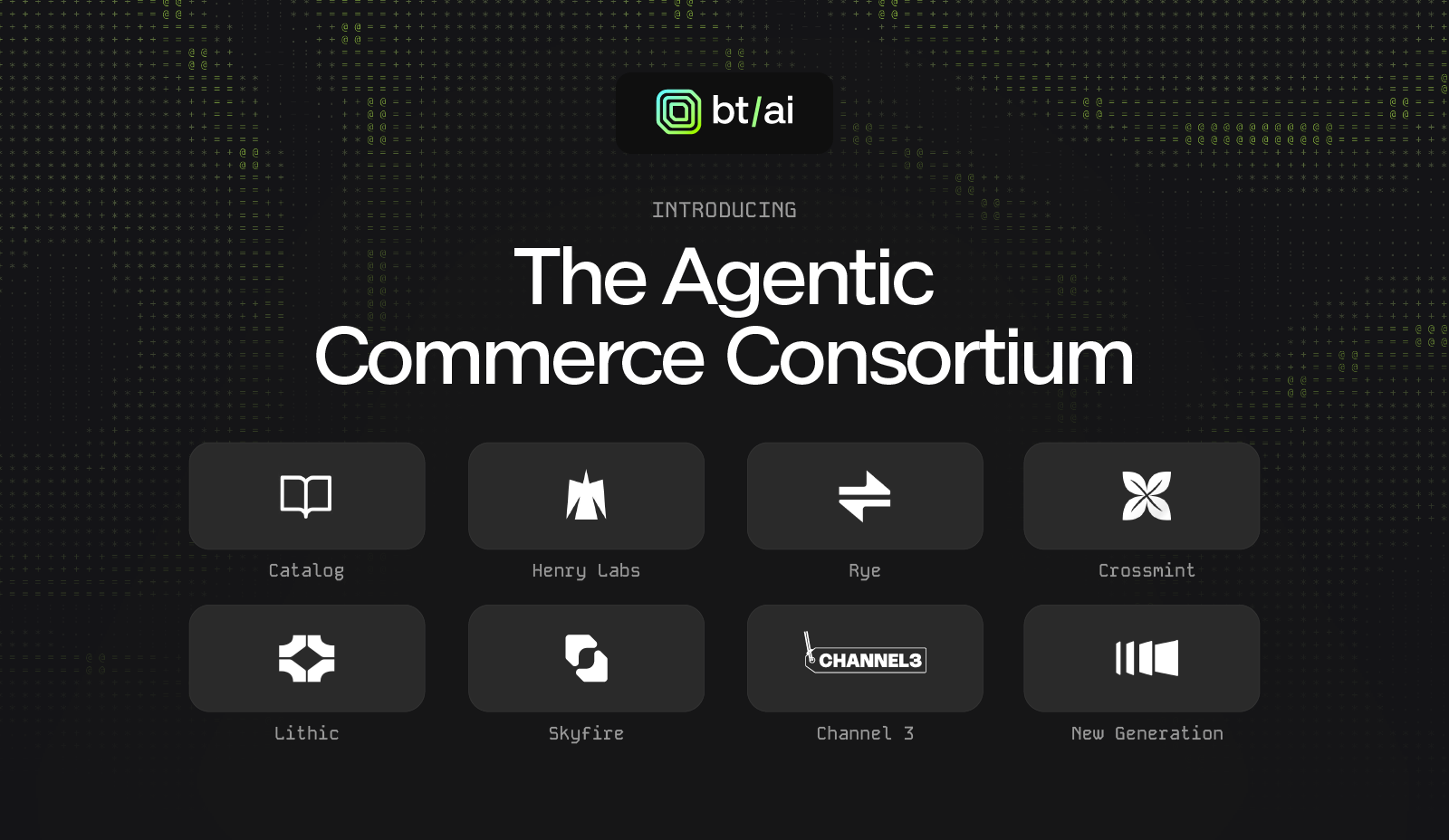Agentic Commerce and AI Agents: Spend Less Time Buying

When we think about agentic commerce, we’re talking about empowering artificial intelligence (AI) agents to transact on our behalf. This is the new frontier of consumer and business transactions, where AI agents actually complete purchases on our behalf.
As this future becomes more and more a reality, it raises some uncomfortable questions: Who initiates these transactions? How do we confirm user intent? Where does the liability live? What are the differences between agentic payments, and commerce being enabled within an AI ecosystem like ChatGPT?Basis Theory CEO and Co-Founder Colin Luce discusses agentic commerce and some of the underlying questions that are associated with agentic payments on The Payments Strategy Show. The conversation goes into which types of payments are most likely to be fully automated, what the next 12-24 months look like for agentic commerce, and some use case examples.
“Agentic commerce is about accelerating efficiency and reducing wasted time in the buying experience,” says Luce. “We all still enjoy going to the mall, but buying toothpaste and toilet paper could be automated. Everything in between will be an accelerated buying process with a human in the loop.”
Guardrails for Responsible Agentic Commerce
Luce pauses when host and Rainforest CEO Joshua Silver asks, “How does life change with agentic commerce?”
“Part of the reason this doesn’t get talked about enough is that we all don’t want to answer this hard question,” Luce says jokingly. “Hard questions like this make people pause when it’s easier to focus on pushing innovation forward.”
For agentic commerce to scale responsibly, it must have a few essential guardrails.
Guardrails for agentic commerce revolve around:
- Identity: Has the agent verified who it’s acting on behalf of?
- Authorization: Is the transaction properly permissioned?
- Intent: Did the actual user truly initiate this action?
“And where should controls be? At the platform or LLM level? Do we attach a one-time use virtual card with present spending limits?” Luce says. “There are tradeoffs between ubiquity, extensibility, and time.”
What Agentic Commerce Looks Like
Luce shared an example of when he’d use agentic commerce and voice search.
“If I’m in Target, and they are out of something, I can pull up ChatGPT and ask if the nearby Best Buy had what I wanted,” Luce explains. “If I have a stored payment credential within ChatGPT, I could ask it to buy that item for me, and have it ready for pickup.”
And if a majority of these interactions happen from a mobile device, will AI agents be viewed like Apple Pay and Google Pay?
“Can we lean on biometrics to help solve the question of, is it really you?” Luce asks. “Which speaks to why I think there’s always a need to have some sort of human in the loop.”
As you read this, you have the opportunity to shape the future of agentic commerce. Basis Theory has spent the last four years building the infrastructure to help merchants scale using multiple-processor strategies.
That foundation set us up to ride the wave that is agentic commerce.
.png?width=365&height=122&name=BTLogo%20(1).png)



